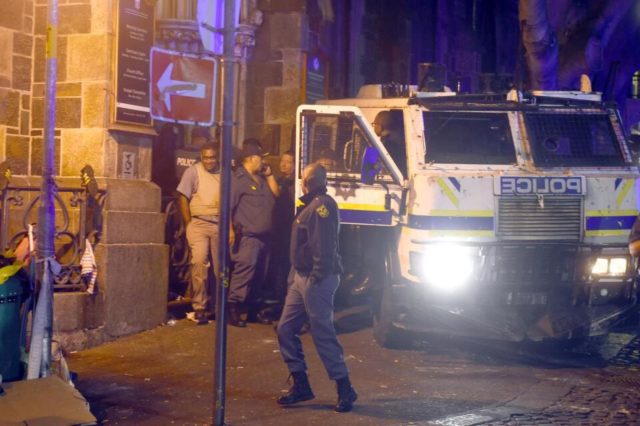Research shows that crime rates increased as lockdown regulations were eased
FOUR provinces have emerged in the SAPS quarterly report as crime hot spots in the country. The report has KwaZulu-Natal, Eastern Cape, Gauteng and the Western Cape in the lead in terms of crimes reported at police stations.
The top 30 police stations with the highest reported murder cases were in these provinces, though these stations only make up 2.7% of the country’s police stations. In total they contributed 22.5% of the national murder rate of about 4,976 cases. About 9,518 rape cases were reported at these stations.
The research conducted by the Institute for Security Studies (ISS) indicated that there were fewer criminal offences during stricter lockdown levels, but crime rates increased as lockdown regulations were eased.
“It is encouraging that during the lockdown, and I think it has to do with the fact that more people are at home, thus there is a decrease in property-related transgression, as there were movement restrictions. However, these are not sustainable because when we start looking at the level of violence, we see that the levels remain extremely concerning,” said Lizette Lancaster, crime hub manager for ISS.
“Although movement restrictions had an impact, those types of restrictions are not sustainable. In the short term, these restrictions might work, but will not solve the violence problems. As a matter of fact, we have started seeing an increase in the level of violence, and that is because the socio-economic strain placed on the society as a result of the lockdown, and its negative impact on jobs, as well as food security, will be long term,” elaborated Lancaster.
Although the SAPS report indicated that there has been an 8.5% decline in contact crimes such as gender-based violence (GBV), robbery and robbery with aggravating conditions, with property theft showing the highest decline during alert Level 5, crimes related to property theft increased immensely from alert Level 3.
Murder and rape remain the two highest recorded crimes in the first three months of this year under alert Level 1, though there was a significant decrease during Level 5 and Level 4.
Lancaster said that at least 12% of these murders were linked to gangs, while 5% was attributed to taxi violence. She added that murder rates were the most accurate recorded statistics.
“We often focus on murder because it is often reliable crime statistics. It is also a good proxy for violence, as assaults are not often reported to the police,” said Lancaster.
Although a portion of these crimes was recorded in the SAPS report, a number of them might not have been reported due to a lack of trust in the police.
“Crime is a gendered and classed issue. In communities that we work in, such as Khayelitsha, the struggle for safety and being safe is an everyday struggle. People are confronted with various forms of crime and violence to the extent that violence becomes an everyday part of reality.
“We know of so many incidences where women are being raped on their way to the bathroom, where women are being placed under automatic curfew because of how unsafe it is,” said Ntebaleng Morake, researcher and education coordinator at the Social Justice Coalition.
Morake further said: “Despite these levels of violence and crimes that communities are confronted with, there is still a huge mistrust from communities towards the SAPS. People still don’t trust the police. This results in the under-reporting of crimes, which also increases vigilantism and mob justice. It is concerning for us that vigilantism is on the rise. This is why we need SAPS to be seen to be doing their work, so that faith in our justice system can be restored.”
In a media statement, Police Minister Bheki Cele said that the SAPS was aware that some provinces were regressing on the gains they previously made in the creation of safer communities, but they had devised a plan to address the regression.
“As part of the SAPS turnaround plan, operational oversight interventions in the Western Cape and Kwa-Zulu Natal have already started. Hundreds of additional forces have been deployed from national to these provinces, to assist in crime-fighting initiatives,” said Cele.








